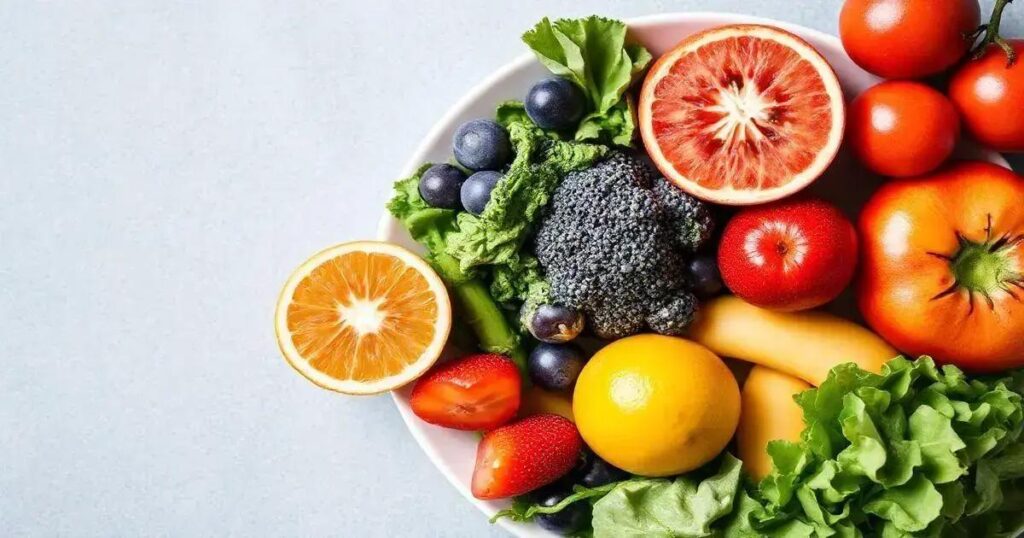Learn how to limit sugar intake without feeling deprived by understanding the health effects of sugar, exploring healthy alternatives, and implementing practical tips for maintaining satisfaction while reducing sugar consumption, ensuring a healthier lifestyle.
Are you struggling with excess sugar in your diet? It’s common to feel deprived when trying to cut back on sugary foods. However, learning how to limit sugar intake without feeling deprived is possible! In this article, we’ll explore practical tips and delicious alternatives to help you enjoy satisfying meals while promoting better health without the guilt.
Understanding the Effects of Sugar on Health
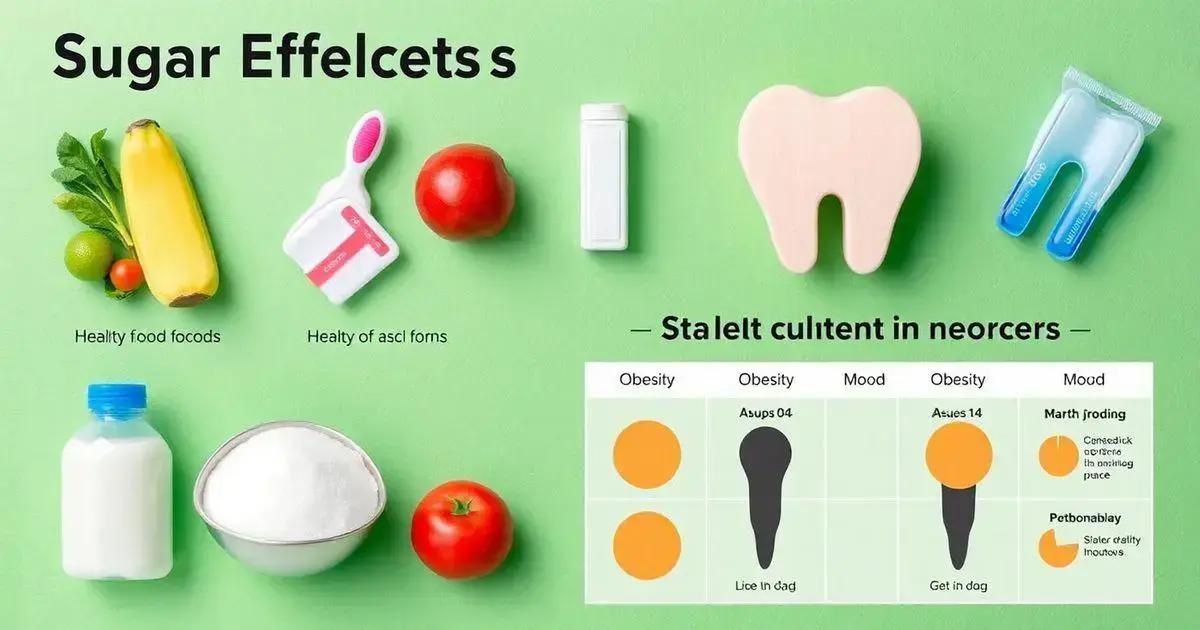
Understanding the Effects of Sugar on Health
Sugar, especially in forms like sucrose and high-fructose corn syrup, can have significant effects on your health. Excessive sugar consumption is linked to various health issues, including obesity, diabetes, and heart disease.
Short-term Effects
When you consume sugary foods, your blood sugar rises quickly. This can lead to a spike in energy, often called a “sugar high.” However, this is usually followed by a rapid drop in energy, known as a “sugar crash,” which can leave you feeling tired and irritable.
Long-term Health Risks
Eating too much sugar over time can lead to serious health problems. One of the most concerning risks is obesity, as sugary foods are often high in calories and low in nutrients. Additionally, sugar can contribute to insulin resistance, increasing the risk of type 2 diabetes. Heart disease may also be aggravated by a high-sugar diet, as some studies point to sugar’s effect on inflammation and blood pressure.
The Role of Sugar in Dental Health
Another area where sugar can impact your life is dental health. Sugar is a major contributor to tooth decay. Bacteria in the mouth feed on sugar and produce acid, which can erode tooth enamel and lead to cavities. Hence, limiting sugar intake can help keep your teeth healthy and strong.
Mental Health Implications
Research has shown links between high sugar consumption and mental health issues. Diets high in sugar may contribute to conditions like depression and anxiety, as they can lead to fluctuations in mood and energy.
Considering these effects, it becomes clear that understanding the role sugar plays in our health is vital. Reducing sugar intake can lead to improved well-being in various aspects of our lives, supporting a healthier and more vibrant existence.
Healthy Alternatives to Sugar
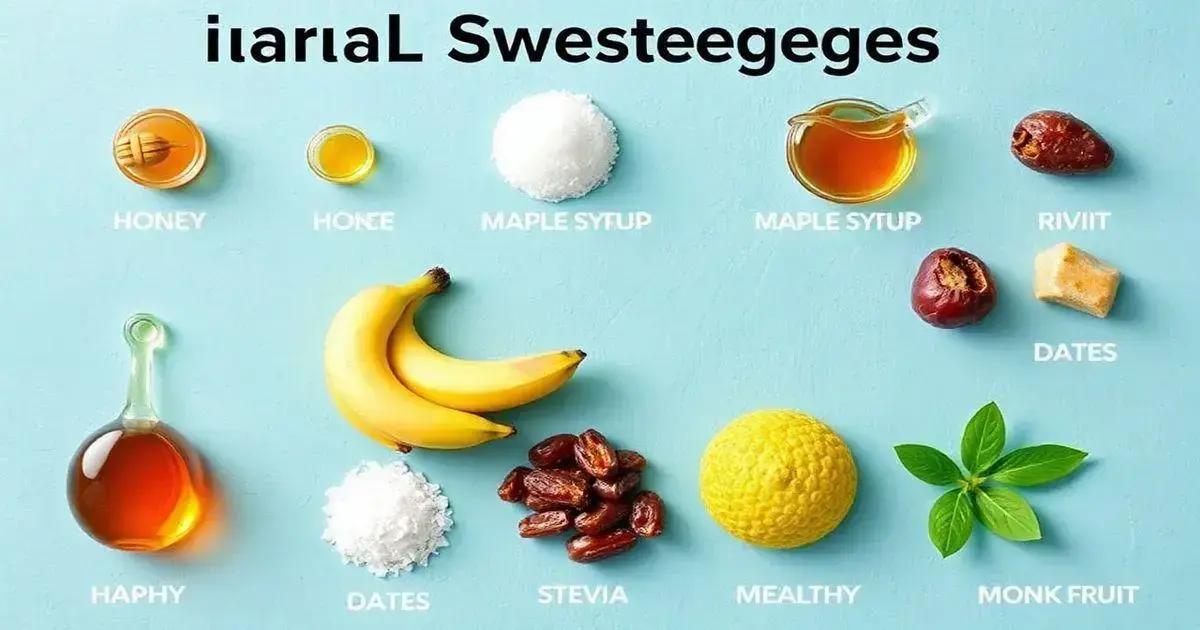
Healthy Alternatives to Sugar
When trying to limit sugar intake, it’s important to know healthier alternatives that can satisfy your sweet cravings. Many options can enhance the flavor of your foods without the negative health impacts of traditional sugars.
Natural Sweeteners
Honey is a popular natural sweetener. It has nutrients and antioxidants, making it a better choice than refined sugar. Another great option is maple syrup, which contains vitamins and minerals. Use it sparingly on pancakes or in baking.
Fruit-Based Sweeteners
Fruits like bananas or dates can add sweetness naturally. For example, mashed bananas can replace sugar in baked goods. Similarly, date puree can sweeten smoothies and desserts. These options are not only sweet but also provide fiber and vitamins.
Stevia and Monk Fruit
Stevia is a herb that is much sweeter than sugar but contains no calories. It’s great for beverages and baking. Another alternative, monk fruit extract, also has zero calories and is a perfect sugar substitute for sweetening foods and drinks.
Unsweetened Cocoa Powder
If you’re craving chocolate, try using unsweetened cocoa powder in recipes. It offers natural chocolate flavor without the added sugar. Combining it with healthier sweeteners can create delicious treats without the sugar rush.
These healthy alternatives to sugar make it easier to enjoy sweet flavors while sticking to your goals. Finding ways to incorporate these options into your meals can greatly contribute to a balanced diet.
Tips for Reducing Sugar Intake
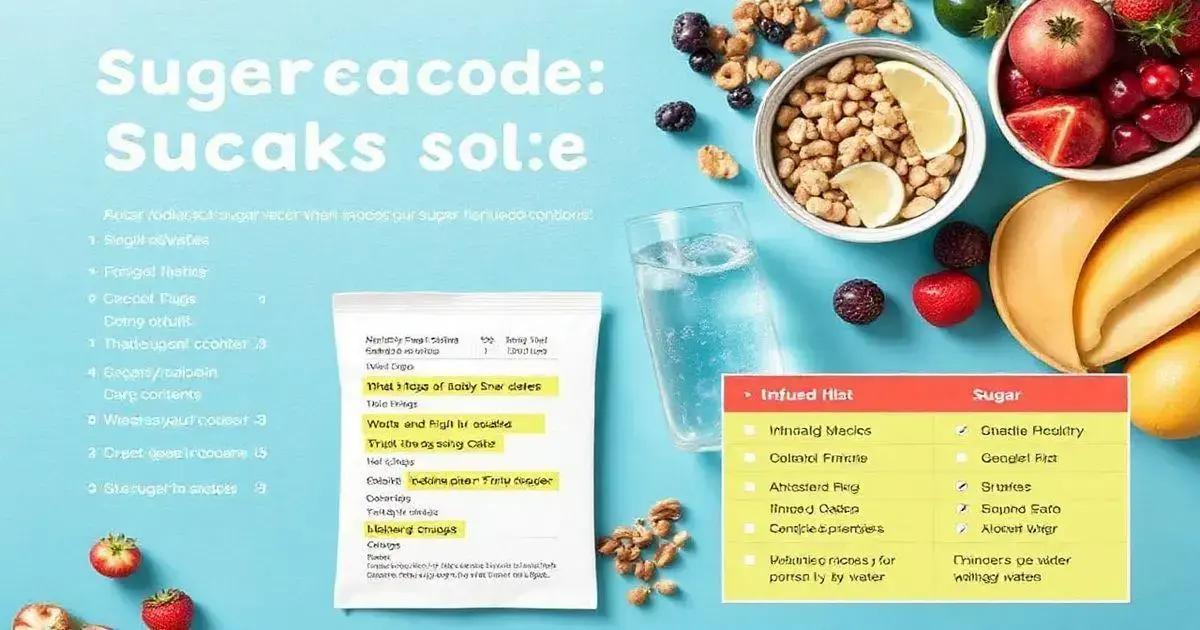
Tips for Reducing Sugar Intake
Reducing sugar intake can be easy with a few simple changes. Here are practical tips to help you cut back without feeling deprived.
Read Labels Carefully
Always check food labels before purchasing. Look for hidden sugars such as glucose, fructose, or sucrose. Choose products with less than 5 grams of sugar per serving whenever possible.
Plan Your Meals
Meal planning can help you control what you eat and avoid last-minute sugary snacks. Prepare healthy meals and snacks ahead of time, keeping them on hand for when hunger strikes.
Stay Hydrated
Sometimes we confuse thirst for hunger. Staying hydrated can reduce cravings for sugary drinks. Opt for water, herbal teas, or infused waters with fruits for a tasty alternative.
Gradually Reduce Sugar
Instead of cutting sugar out entirely, try reducing it gradually. Decrease the amount of sugar you add to coffee or tea little by little. This method helps your taste buds adjust, making it easier to enjoy less sweet foods.
Limit Sugary Beverages
Sodas, energy drinks, and sweetened coffees can be a major source of added sugar. Substitute these with healthier options like flavored sparkling water or unsweetened iced tea to satisfy your cravings.
Find Healthy Snacks
Switch out sugary snacks for healthier alternatives. Snack on fresh fruits, nuts, or yogurt topped with berries instead of cookies or candies. These options can satisfy your sweet tooth while providing valuable nutrients.
Implementing these tips can lead to a successful reduction in sugar intake, helping you achieve a healthier lifestyle without feeling deprived.
Maintaining Satisfaction While Cutting Sugar
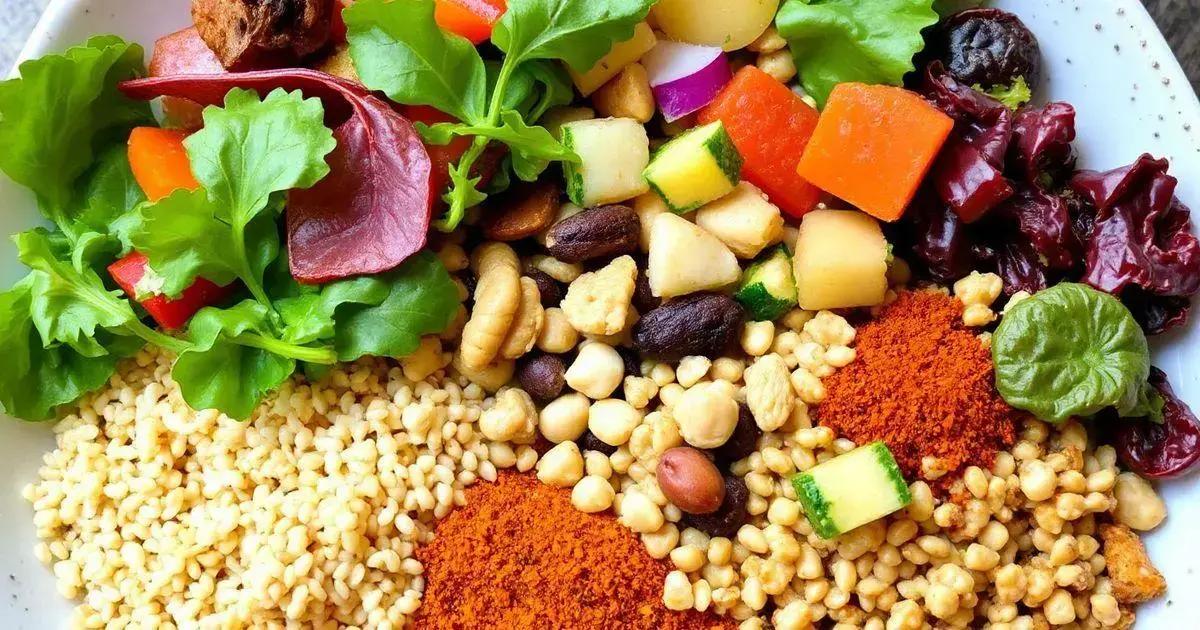
Maintaining Satisfaction While Cutting Sugar
Cutting sugar from your diet doesn’t mean you have to sacrifice satisfaction. Here are some strategies to help you enjoy your meals and feel full without relying on sugar.
Choose Flavorful Foods
Using herbs and spices can add richness to your meals without sugar. Ingredients like cinnamon, vanilla extract, and ginger can enhance flavors, making dishes more enjoyable and satisfying.
Include Fiber in Every Meal
Fiber-rich foods like whole grains, fruits, and vegetables can help keep you full longer. They slow down digestion, which stabilizes blood sugar levels and reduces cravings for sweets.
Opt for Healthier Fats
Incorporating healthy fats, such as avocado, nuts, and olive oil, can improve satisfaction levels in meals. Fats can make you feel fuller, reducing the desire for sugary snacks.
Mindful Eating
Practicing mindful eating can enhance your enjoyment of food. Focus on each bite, savor the flavors, and listen to your body’s hunger signals. This awareness can help prevent overeating and cravings for sugar.
Experiment with Texture
Adding crunchy, chewy, or creamy textures can elevate your meals. Try snacks like air-popped popcorn, carrot sticks with hummus, or almond butter with apple slices. These textures can satisfy cravings without added sugar.
Stay Balanced
Ensure your meals are well-balanced with protein, carbohydrates, and fats. Balance helps maintain your energy levels and keeps sugar cravings at bay. Incorporate a variety of foods to ensure you’re meeting your nutritional needs.
By adopting these methods, you can maintain satisfaction while cutting sugar, allowing you to enjoy a healthier lifestyle without feeling deprived.
Embracing a Healthier Lifestyle
Limiting sugar intake without feeling deprived is achievable with the right strategies. By understanding the effects sugar has on your health, you can make informed choices. Embrace healthy alternatives to sugar and utilize practical tips for reducing your intake.
It’s important to maintain satisfaction while cutting sugar by selecting flavorful, nutrient-dense foods. Incorporate fiber, healthy fats, and practice mindful eating to keep cravings at bay. Remember, it’s a journey toward better health, and with patience and determination, you can enjoy a satisfying, balanced diet.
With these tools, you can successfully navigate your way toward a healthier lifestyle, enjoying the benefits of reduced sugar while feeling energized and fulfilled.
FAQ – Frequently Asked Questions about Limiting Sugar Intake
What are the primary health risks of excessive sugar intake?
Excessive sugar intake is linked to obesity, type 2 diabetes, heart disease, and dental problems.
Can I satisfy my sweet cravings without sugar?
Yes, you can use natural sweeteners like honey, maple syrup, or fruit-based options to satisfy sweet cravings.
How can reading labels help in reducing sugar intake?
Reading labels can help identify hidden sugars in packaged foods, allowing you to choose options with lower sugar content.
What are some high-fiber foods to help with sugar cravings?
Foods such as whole grains, fruits, vegetables, and legumes are high in fiber and can help keep you full longer.
Is it important to reduce sugar intake gradually?
Yes, gradually reducing sugar intake can help adjust your taste buds and minimize withdrawal effects.
What role do healthy fats play in maintaining satisfaction?
Healthy fats can enhance satiety and help reduce cravings for sugary snacks.

